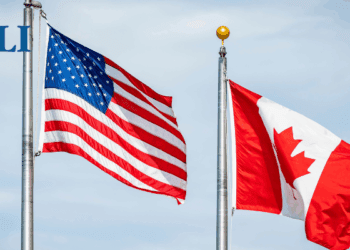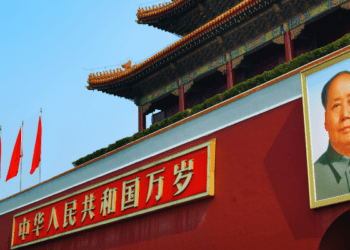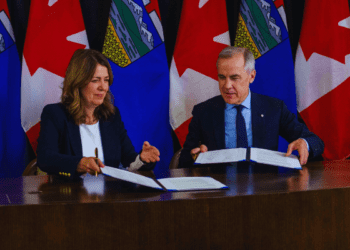December 13, 2012 – MLI’s Brian Lee Crowley writes about sustainability and our relationship with nature in his latest Postmedia column. The column is published below and appeared in the Ottawa Citizen, Calgary Herald, Vancouver Sun, Montreal Gazette, Edmonton Journal, Saskatoon’s StarPhoenix, Regina’s Leader-Post, Windsor Star, The Province, Canada.com, and the New Brunswick Telegraph-Journal.
By Brian Lee Crowley, Ottawa Citizen, December 13, 2012
Are human prosperity and well-being an illusion, bought at the expense of Nature? Human beings add nothing to the world, in this view, and subtract everything. But however much this view may appeal to, say, the apostles of environmental doom and gloom, the opponents of the oilsands and fish farming and pipelines and biotechnology, it is wrong.
Human beings add something crucial to the world: their intelligence. And the history of humanity has been one of the successful incremental application of human intelligence to the problems of nature and humanity.
It is not that we do not face problems. We do. But identifying our problems is only the first step to solving them. We must also look at the mechanism we have successfully used to solve every one of humanity’s significant challenges since time began: our minds.
The wealth of humanity comes from mixing natural and human capital (our knowledge and experience) in differing proportions, and as natural capital becomes scarce in one context or another, we invent ways to sustain it, supplement it or replace it. Regrettably, however, the problems almost invariably arise before the solution is conceived. Indeed the problem is usually the cause of the solution’s emergence. But that means that human progress is inescapably a matter of faith: faith in the power of reason to solve our problems even when we cannot foresee what the solution will look like.
It is therefore a startling presumption to say that because we can identify a looming problem, global warming say, but cannot yet see how to solve it, that we must therefore abandon our way of life — use less, consume less, eat less, procreate less, travel less, expect less — or we will destroy ourselves.
This attitude puts me in mind of the recording industry executive who, in the early 1960s, famously argued that the Beatles would not succeed in the U.S. market. As the immortal advertisements for The Economist magazine so concisely put it: Have you ever wished you were better informed?
The pessimists claim science backs up their view of humanity’s place in nature. The veil of intellectual respectability in which the prophets of environmental doom and gloom like to drape themselves relies on the prestige of science for its credibility. They then propose to use science as a guide for re-ordering human activities in accordance with their estimation of the number of people the planet can support (“carrying capacity”).
And yet the power of science lies not in the passive observation of what is; science offers tools to the human imagination to discover ways of surmounting problems. Because of science and imagination, the carrying capacity of the planet is not fixed, but is hugely variable, depending on the leaven of human intelligence that we can add to it.
Unavoidably, however, the solutions to our challenges emerge unpredictably. So in the absence of precise knowledge of the scientific and technological solutions to our problems, do we abandon hope and settle for shrunk hopes and aspirations? Or do we press on, seeking the prosperity that will allow us to do more with less, and create the technological marvels that will carry us through?
We should choose to carry on. Here’s why.
Our stock of knowledge is exploding at an unprecedented rate. In cutting-edge fields, such as computer science or nanotechnology, the total amount of knowledge doubles every 18-24 months, while the whole body of human knowledge doubles roughly every 15 years. One half of everything that is known today was not yet known in 1998.
We as individuals are therefore condemned to ignorance. Our brain’s capacity is relatively fixed, while the knowledge known by all human beings collectively is expanding exponentially.
With minds so limited, and knowledge so vast and variegated, you and I are condemned to see a narrowing slice of what is known at the same time as humanity has never had access to more knowledge. As Karl Popper, the philosopher of science, once remarked, “Our knowledge can only be finite, while our ignorance must necessarily be infinite.”
What does this all mean about sustainability and our relationship with Nature? That we should be deeply skeptical about the claims of people who refuse to see the humanity adds something to the world: its own intelligence, and that that intelligence has repeatedly allowed it to surmount every significant challenge, often to our own amazement.
We should be less inclined to accept that our rich way of life is to be junked simply because someone with a specialist’s view of a tiny piece of human knowledge cannot see whence will come the solutions to today’s problems. The solutions will come from unexpected quarters for unforeseeable reasons at unpredictable times. They always have and there is no reason to doubt that they will again. Unless we give up the search.
Brian Lee Crowley is managing director of the Macdonald-Laurier Institute, an independent non-partisan public policy think tank in Ottawa: www.macdonaldlaurier.ca.
© Copyright (c) The Ottawa Citizen
—




